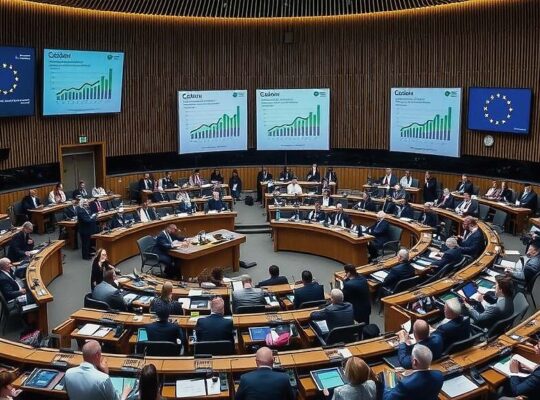Leading representatives of Germany’s Mittelstand – the nation’s vital network of small and medium-sized enterprises – are voicing significant concerns regarding the government’s economic policies, expressing a feeling of being overlooked and unsupported.
In a joint commentary published in the Handelsblatt, Helena Melnikov, Chief Executive Officer of the DIHK (Association of German Chambers of Commerce and Industry); Holger Schwannecke, General Secretary of the ZDH (Central Association of German Crafts, Trade and Services); and Peter Klotzki, Chief Executive Officer of the BFB (Federation of German Small and Medium-sized Businesses), argue that sustained economic recovery hinges on the robust health of the Mittelstand. They contend that existing policies are instead compounding challenges for these businesses.
The commentary specifically highlights disappointment over unfulfilled promises concerning electricity taxes, perceived superficial adjustments to the Supply Chain Due Diligence Act, the introduction of a loyalty-to-collective-bargaining law, a significant rise in the minimum wage and record-high social security contributions – all contributing to escalating labor costs. “Positive initiatives for the Mittelstand? Nonexistent” the representatives state bluntly.
The importance of the Mittelstand to the German economy is emphasized, noting that it comprises over 99 percent of the nation’s businesses and is characterized by innovation and responsibility, crucial for driving the ongoing transformation of the economy. The authors stress that political support isn’t merely desired; it must be actively facilitated to leverage this inherent strength. They warn that a hesitant economy will curtail investment and, in the most severe scenario, lead to a long-term abandonment of the German location.
Growing frustration is a persistent theme. The absence of a clear strategic direction is viewed as squandering significant economic potential. The commentary concludes with a stark warning: with each day lacking a coherent strategy, the risks escalate, frustration amongst business owners grows and the joy of self-employment diminishes.












